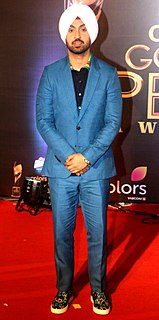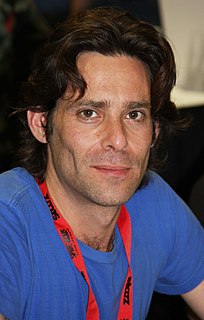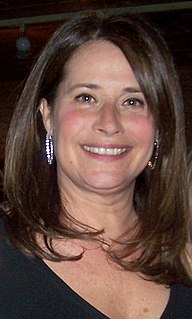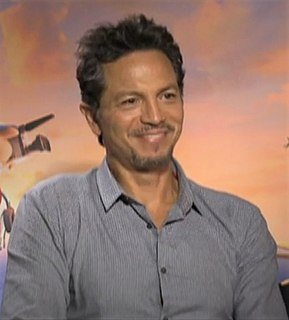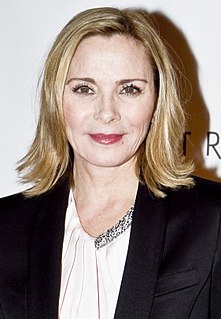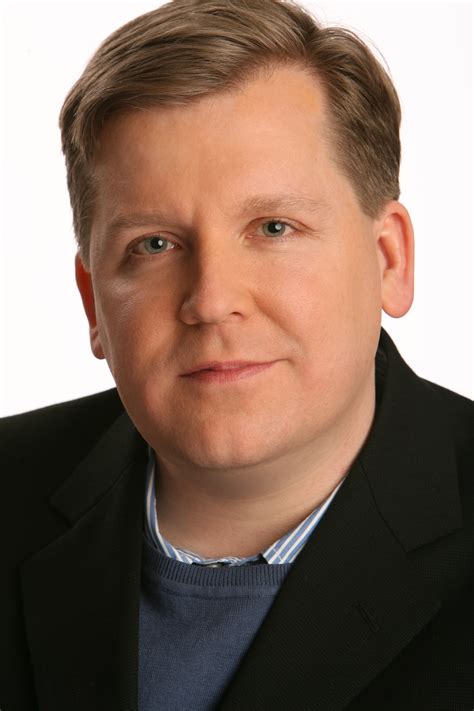A Quote by Philip Seymour Hoffman
Well, in the theater, I think you're actually more responsible for what is going on onstage as a director than you are in film.
Related Quotes
People call me a theater actor, but I'm just an actor. But I tell my friends all the time - especially a lot that do theater and haven't done a lot of TV/film - that you have so much more control over your work onstage. When you go onstage, you can really see the difference between people who can really do it, and people who are just kind of pretending to do it. There is no editor, there's nothing that's going to stop the actor from showing what they can do unless it's not a well-written role.
I was desperate to do more TV and film. Because I considered myself to be a theater creature. A theater animal. I was convinced that I was going to be onstage for the rest of my life. Because it's something I can really do. I thought I was pretty good at it, and it's kind of stupid, but I was concerned that people would go, "Oh yeah, he's very good onstage, I'm not sure he can do television."
I don't think we've ever known what the hell's going on when we do Tap shows. It's possible the audience are effectively getting to see more of the movie when we play. You know, they know the songs, so anything we do onstage, whether we're meaning to or not, is an extension of the film. Other than that, I wouldn't understand what's going on.
Being on a film set is like being in tech forever. In theater, when you finally finish rehearsing, you go onstage and you do the lights and the sets and you make the machine of the production work. It takes usually about ten days in the theater, two or three weeks if it's a really big musical. I mean, it's hell on earth. You just sit around forever while they adjust the lights. And every playwright with half a brain runs for the hills when tech starts because it's so boring, and you don't want to talk to the director because the director is running this giant machine.
When you're on stage, you're playing to whoever is in the back of the room, and TV and film is so much more detailed and nuanced, but I think that's what I always wanted to do. As much as I love theater and musical theater and would love to do it again, I really love the subtleties of film and theater acting.
Me and Kirby are very collaborative and it changes from film to film. The first project we worked on together, Derrida, we co-directed. The last film Outrage, I was the producer and he was the director. This film was much more of a collaboration - he is the director and I am the producer - but this is a film by both of us.
When I was younger, I definitely thought musical theater was sort of more pure than film. I used to say I'd never go to film because we had to get it right the first time in musical theater. But then, of course, I started doing film and realized I loved it. Keep in mind that I was 8 years old when I said that.
A strong film director does leave you to your devices. A strong director allows you to be free and you trust that he's there and he will tell you if you've gone too far. A strong director allows you to be much more experimental and take greater chances than a director who isn't secure within himself.

